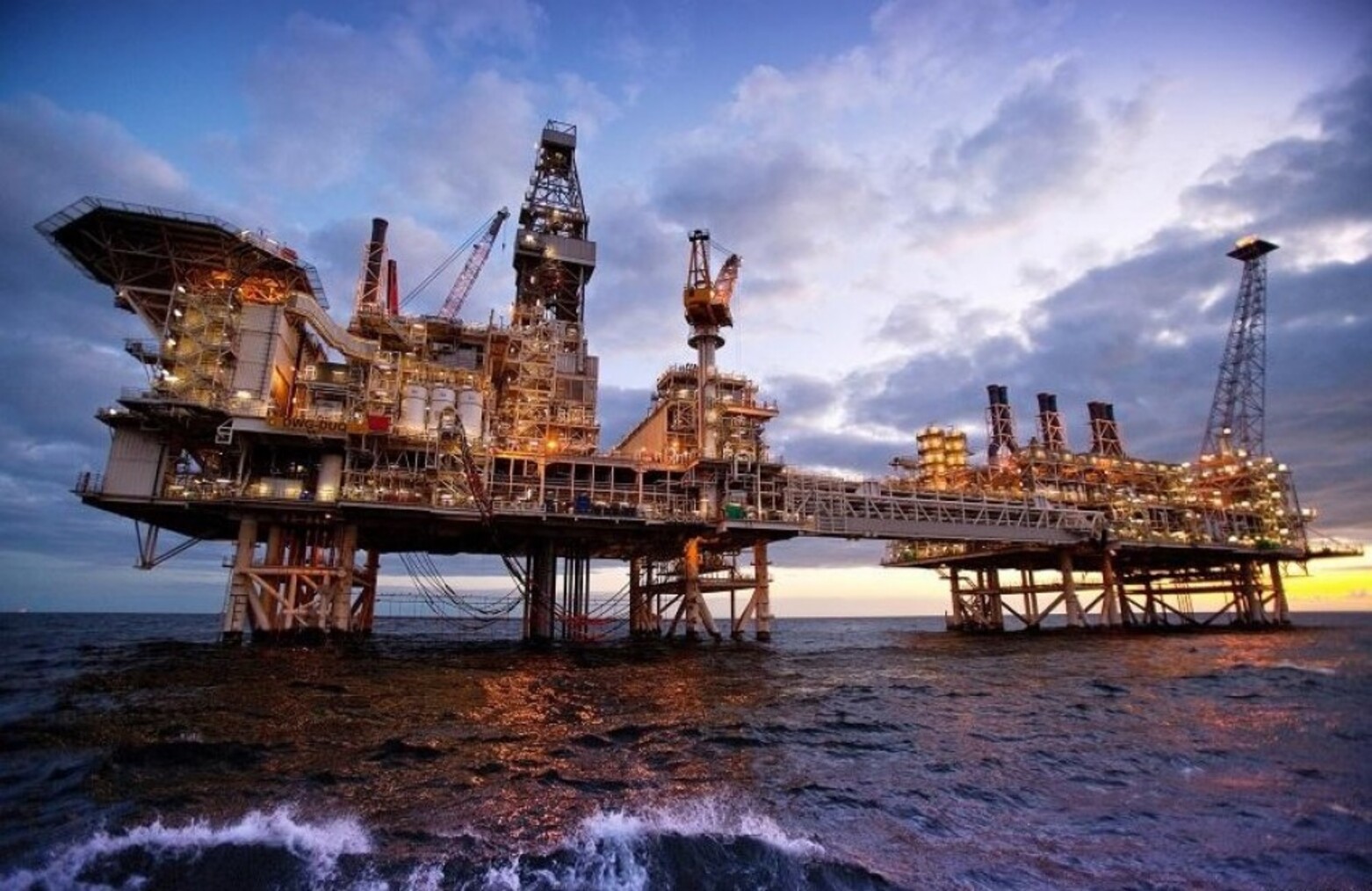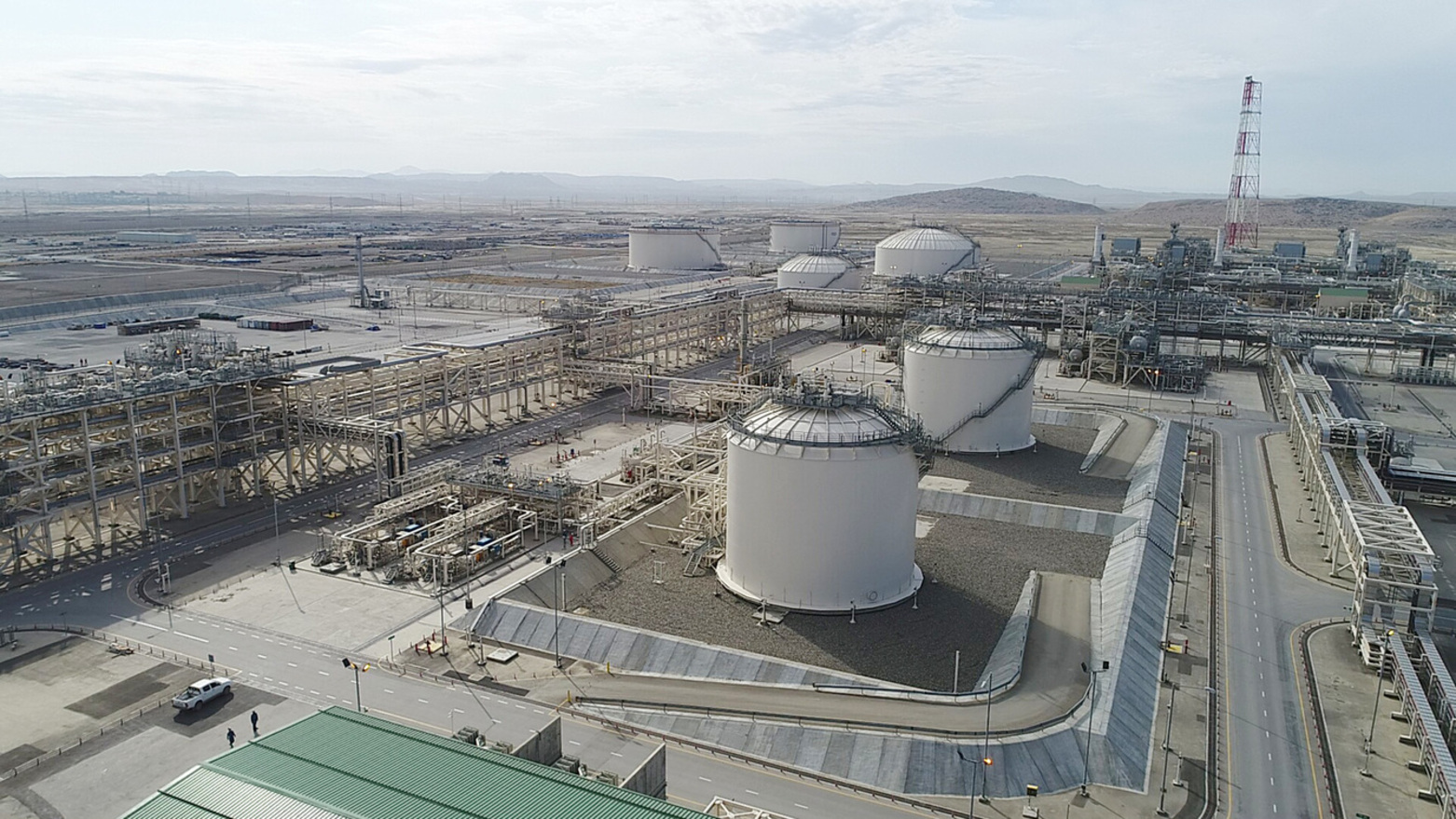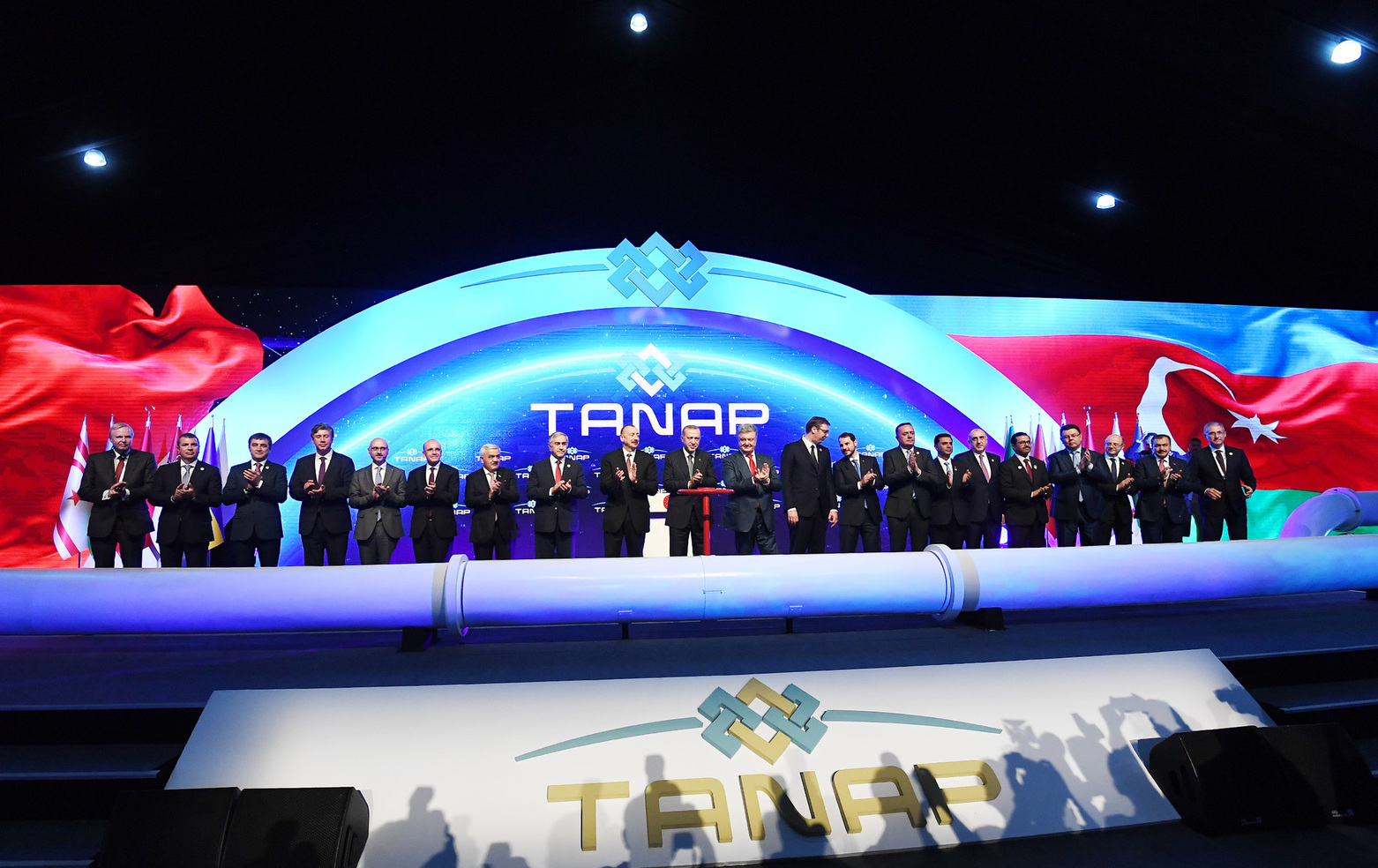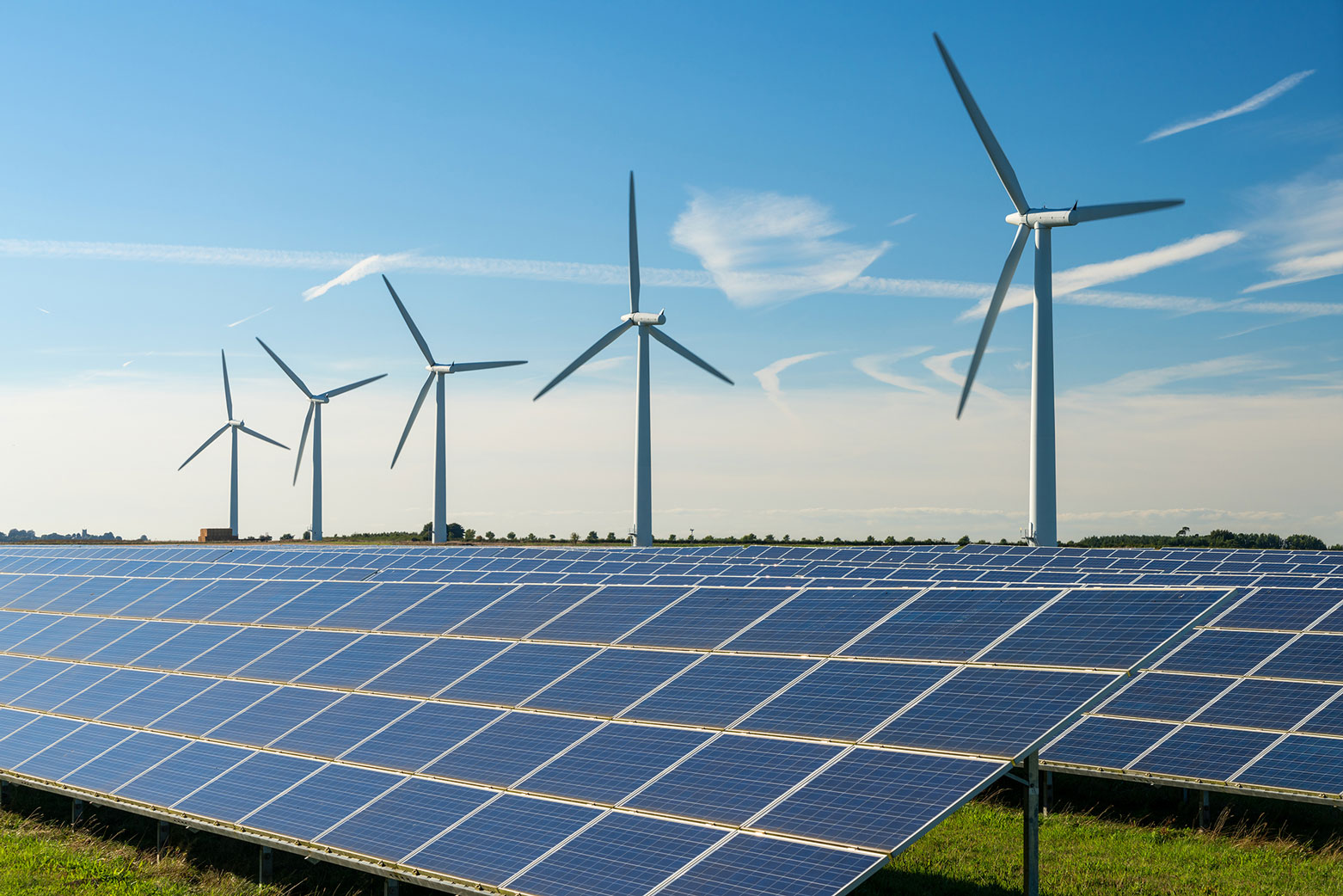Oil sector

In order to transform Azerbaijan into a modern and robust state with sustainable economic development, National Leader Heydar Aliyev formulated the oil strategy. This strategy, integral to the fundamental transformation of future political and economic reforms, facilitated the engagement of foreign investors in the development of Azerbaijan's oil fields. Additionally, it encompassed the diversification of transportation routes for crude oil, the efficient management of oil revenues, and ushered Azerbaijan into a new stage of development.
Under the leadership of National Leader Heydar Aliyev, one of the landmark agreements in Azerbaijan's 20th-century history due to its political, economic and strategic importance - the Agreement on the Joint Development and Production Sharing for the “Azeri” and “Chirag” Fields and the “Gunashli” Field in the Azerbaijani Sector of the Caspian Sea - "The Contract of the Century" was signed on 20 September 1994. The $7.4 billion agreement involved 11 international oil companies (AMOCO, BP, McDermott, UNOCAL, SOCAR, Lukoil, Statoil, TPAO, Pennzoil, Ramco, Delta) representing seven countries (Azerbaijan, USA, UK, Russia, Türkiye, Norway and Saudi Arabia) as contractor parties. They soon established several working structures - the Steering Committee, Azerbaijan International Operating Company (AIOC) and the Advisory Council. “The Contract of the Century” was ratified on 12 December 1994 by the Parliament of Azerbaijan.
Although according to initial evaluations, “Azeri”, “Chirag” fields and the deep-water part of “Gunashli” field had 511 million tons of crude oil, further evaluations set oil reserves at 1 billion tons.
These large blocks of oil fields have been developed in three phases. The first oil from the "Chirag" platform was produced on 7 November 1997, and the following stages were successfully implemented. New oil pipes were built and commissioned to implement the provisions of the contract on time and ensure transportation of the growing volumes of oil to the international markets:
- In late 1997, oil started to be exported to the Black Sea by Baku-Novorossiysk pipeline;
- In 1999, a pipeline from Baku to another Black Sea port – Supsa – was commissioned. The first tanker carrying Azerbaijani oil was sent to the world markets in December 1999;
- In 2002, the foundation of the Baku-Tbilisi-Ceyhan main oil pipeline was laid thanks to the continuous efforts of National Leader Heydar Aliyev. Although provided for in the Contract of the Century, the pipeline was once considered a myth, and many believed it would remain on paper. The globally significant pipeline was a crucial step towards making Azerbaijan an energy corridor. The Baku-Tbilisi-Ceyhan oil pipeline was inaugurated with the participation of President of the Republic Azerbaijan Ilham Aliyev on 25 May 2005. The first Azerbaijani oil was shipped from the Turkish port of Ceyhan in 2006.
In general, to facilitate the transportation of Azerbaijani oil from the Caspian Sea to global markets, pipelines spanning a combined length equivalent to one-tenth of the equator were established: Baku-Novorossiysk (1347 kilometers), Baku-Supsa (833 kilometers) and Baku-Tbilisi-Ceyhan (1768 kilometers).
As of the end of the third quarter of 2023, nearly $43.4 billion has been invested in the development of the "Azeri-Chirag-Gunashli" oil fields block, resulting in the extraction of approximately 580 million tons of oil. Additionally, over 55 billion cubic meters of associated gas has been produced and delivered to the Azerbaijani government.
Under the Decree signed by President of the Republic of Azerbaijan Heydar Aliyev on 29 December 1999, the State Oil Fund of the Republic of Azerbaijan was established to ensure effective management of hydrocarbon revenues and fair distribution of oil among generations and to channel oil revenues into the development of priority areas. Thanks to the efficient and transparent management of revenues, the State Oil Fund has quickly become one of the world's most transparent funds and ensured long-term financial profits for the present and future generations.
On 14 September 2017, the amended and restated Azeri-Chirag-Gunashli Joint Development and Production Sharing Agreement was signed in Baku. That marked a new stage in the development of the “Azeri-Chirag-Gunashli” field. The new agreement was signed by officials of the Azerbaijani government, SOCAR, BP, Chevron, IMPEX, Statoil, ExxonMobil, TP, ITOCHU and ONGC Videsh companies. BP remained the project's operator under the amended and stated agreement, which was extended until 2049. SOCAR's shares increased from 11 to 25 percent, and Azerbaijan's direct share in profitable oil amounted to 75 percent. Subsequent to the new contract, an agreement was reached in 2019 on constructing an additional production platform in the contract area of the “Azeri-Chirag-Gunashli” fields' block.
By the end of the third quarter of 2023, 38 production sharing agreements have been signed with foreign oil companies.
The signing of the Contract of the New Century marked a new stage in Azerbaijan's oil strategy. It means the start of a new era in the history of modern Azerbaijan, additional guarantees for the country's political and economic security, new investments, GDP growth, new jobs and improvement of social welfare.
On 18 October 2018, an inauguration ceremony of the Star Oil Refinery was held in the city of Izmir, Türkiye. President of the Republic of Azerbaijan Ilham Aliyev and President of the Republic of Türkiye Recep Tayyip Erdogan attended the ceremony. The processing capacity of the Star Oil Refinery is 11 million tons of crude oil per year. The refinery will produce diesel, jet fuel, light naphtha and other refined products. The plant can also fully meet Türkiye's need for jet fuel.
Over the past period, Azerbaijan has become not only a supplier but also a reliable transit country. Caspian littoral countries prefer to transport their hydrocarbon resources to international markets through Azerbaijan, as well as oil extracted from the Caspian Sea sector to global markets via Baku-Tbilisi-Ceyhan route. Azerbaijan also has the largest fleet in the Caspian Sea.
Azerbaijan's greater participation in international markets further increases the country's power.
In 2020, the “Karabakh” field went down in history as the first oil field discovered in the years of independence. The initial estimated geological reserves of the field are more than 70 million tons of oil.
As part of the renovation and modernization project at the Heydar Aliyev Oil Refinery, the production of diesel fuel compliant with the "Euro-5" standard has commenced in 2023.
On 21 January 2021, the Memorandum of Understanding was signed between the Government of the Republic of Azerbaijan and the Government of Turkmenistan on joint exploration and development of hydrocarbon resources of the “Dostlug” field in the Caspian Sea.
Gas sector

One of the world's largest gas fields - “Shah Deniz”, was discovered by Azerbaijani geologists in the middle of the last century. However, due to the unavailability of the necessary technology, the exploitation of the field was halted, and its potential was not identified.
In 1996, a consortium established by the State Oil Company of Azerbaijan Republic and international oil companies discovered large reserves in the gas field, and the result exceeded expectations. The field is estimated to contain gas reserves of 1 trillion cubic meters, and it is considered one of a few vast gas fields in the world.
In the following years, the discovery of “Umid” and “Absheron” fields confirmed Azerbaijan's possession of large gas fields. It opened a new page in the history of the natural resources of Azerbaijan.
In 2011, Azerbaijan and the European Commission signed a Joint Declaration on the Southern Gas Corridor project, which marked the initial stage of the project.
To start the second phase of the development of the “Shah Deniz” field, members of the consortium made another historic decision in Baku on 17 December 2013. The signing ceremony was held with the participation of official representatives of a number of countries at the Heydar Aliyev Center. Until the end of the third quarter of 2023, approximately $22 billion was spent, including costs incurred before the final investment decision, on the implementation of the second stage of the Shah Deniz field development.
The idea of the Southern Gas Corridor became a reality thanks to Azerbaijan’s determination and leadership.
On 29 October 2013, President of the Republic of Azerbaijan Ilham Aliyev signed an Order to establish a State Commission to protect Azerbaijan's interests in the Southern Gas Corridor project and provide state support to the project participants.
The ceremony of laying the foundation of the Southern Gas Corridor took place in Sangachal on 20 September 2014 - on the 20th anniversary of the Contract of the Century - with the participation of heads of state and government, ministers of Southeastern European countries, and heads of international companies.
Azerbaijan has become the initiator, shareholder and host country of the strategically important Southern Gas Corridor project. Türkiye and Georgia were the first to join the initiative, and they were subsequently followed by Italy, Greece, Bulgaria and Albania.
Azerbaijan is already exporting its gas to neighboring countries, and new pipelines have been built to start exporting it to the European market:
- In 2007, the Baku-Tbilisi-Erzurum gas pipeline (South Caucasus Gas Pipeline) was commissioned, and gas produced under the first phase of the Shah Deniz project is exported to Georgia, Türkiye and Greece;
- In 2012, Azerbaijan and Türkiye signed TANAP (Trans-Anatolian Natural Gas Pipeline) project on the initiative of President of the Republic of Azerbaijan Ilham Aliyev and then Prime Minister of the Republic of Türkiye Recep Tayyip Erdogan;
-In 2013, the Shah Deniz consortium chose the TAP (Trans Adriatic Pipeline) project, which will link the Türkiye’s border to the south of Italy to deliver the Azerbaijani gas to the European markets, the construction of the pipeline was completed in 2020.
These projects enable the implementation of the Southern Gas Corridor project by connecting the “Shah Deniz” gas field to the south of Italy.
TANAP, an essential part of the Southern Gas Corridor, officially inaugurated on 29 May 2018 at the Sangachal terminal, is an indispensable infrastructure project to address energy security issues.
Following the completion of the South Caucasus Pipeline Expansion project, one of the critical components of the Southern Gas Corridor, the transportation of commercial gas to Türkiye within the framework of Shah Deniz-2, began on 30 June 2018.
On 12 June 2018, a grand ceremony was held in Eskisehir, Türkiye, marking the launch of TANAP, Trans-Anatolian gas pipeline.
On 30 November 2019, the official opening of the TANAP-Europe connection was held in the Ipsala settlement of Edirne province of Türkiye, marking the completion of its construction.
Since 2015 an annual meeting of the ministers of the Southern Gas Corridor Advisory Council has been held.
Transportation of commercial natural gas has started on 31 December 2020 via the TAP pipeline, which transports Azerbaijani natural gas to Europe. Thus, Azerbaijan's rich gas reserves are delivered to the Turkish and European markets in diversified, short, and secure ways.
With the commissioning of the Trans Adriatic Pipeline (TAP), Azerbaijani gas, having already reached Georgia and Türkiye, began to be transported to Bulgaria, Greece, and Italy.
"A Memorandum of Understanding on Strategic Partnership in the field of energy between the European Union represented by the European Commission and the Republic of Azerbaijan" was signed on July 18, 2022. One of the main directions of cooperation outlined in the memorandum is the doubling of natural gas volumes transported from Azerbaijan to Europe.
On April 25, 2023, a Memorandum of Understanding on encouraging cooperation was signed between SOCAR and gas transmission operators of Bulgaria, Romania, Hungary, and Slovakia. This initiative, called the ‘Solidarity Ring,' opens up new opportunities for cooperation in enhancing additional gas supply through the improved gas transmission systems of Bulgaria, Romania, Hungary, and Slovakia to Europe."
Azerbaijan possesses proven gas reserves amounting to 2.6 trillion cubic meters, with estimated reserves reaching approximately 3 trillion cubic meters. The notable "Umid" field alone holds a potential of nearly 200 billion cubic meters, positioning Azerbaijan as a dependable supplier of hydrocarbon resources for the ensuing century.
Work on developing the “ACG Future Gas” project and the “Shafag-Asiman” gas field is underway together with BP, the operator of the “Shah Deniz” and “Azeri-Chirag-Gunashli” projects.
Since July 2023, the "Absheron" field, with a gas potential exceeding 300 billion cubic meters, has produced its first gas and condensate. This project made history as the first remotely operated platform in the Caspian Sea. In August 2023, a contract was signed for the sale of a 30% stake in the Absheron gas-condensate field to the United Arab Emirates' ADNOC company. This marks the first investment in an upstream project by the company outside its borders.
In August 2023, the "Shah Deniz" field produced 200 billionth cubic meter of gas.
On September 25, 2023, a ceremony to lay the foundation stone for the Igdir-Nakhchivan gas pipeline was held with the participation of President of the Republic of Azerbaijan Ilham Aliyev and President of the Republic of Türkiye Recep Tayyip Erdogan. This pipeline, intended to be commissioned in 2024, will contribute to the gas supply of Nakhchivan.
Azerbaijan's purposeful activity in the energy field has transformed the country into a regional energy hub.

Green Energy

A clean environment and “green energy” development have been identified as priority directions in Azerbaijan.
“Azerbaijan 2030: National Priorities for Socioeconomic Development”, approved by the President of the Republic of Azerbaijan dated February 2, 2021, constitutes the strategic basis of policies on the protection of environmental balance and renewable energy production in the country. Important goals have been set in the direction of one of the five National Priorities – becoming a country of clean environment and “green growth”.
Azerbaijan has tremendous renewable energy potential. According to recent studies, the renewable energy potential is estimated at 27,000 MW, including 3,000 MW of wind energy, 23,000 MW of solar energy, 380 MW of bioenergy, and 520 MW of hydropower generated by mountain rivers.
Law No. 339-VIQ of the Republic of Azerbaijan “On the Use of Renewable Energy in the Production of Electricity” dated May 31, 2021, has been adopted to develop the renewable energy sector in the country and improve the legislative and institutional environment in this field.
Azerbaijan is a reliable and responsible member of the international community in the tackling the consequences of global climate change. Our country has set the goal of reducing greenhouse gas emissions by 35 percent by 2030 compared to the base year (1990) as a contribution to initiatives to mitigate the effects of global climate change.
In November 2021, at the COP26 Conference, our country made a new commitment to reduce emissions by 40 percent by 2050 and to create a “net zero emission” zone in the liberated territories.
In this regard, the Nakhchivan Autonomous Republic, and Karabakh and East Zangezur regions liberated from occupation have been declared a “green energy” zone. Activities on environmental protection and restoration of the ecosystem have been identified as one of the primary goals in the process of restoration and reconstruction of liberated territories.
According to the Decree of President of the Republic of Azerbaijan Ilham Aliyev “On Measures Related to the Establishment of a Green Energy Zone in liberated territories of the Republic of Azerbaijan” dated May 3, 2021, a Concept has been developed in cooperation with Japan’s “TEPSCO” and relevant measures have been taken in this field.
Currently, Azerbaijan's total electricity generation capacity is 8,320.8 MW, with the capacity of renewable energy, including major hydropower plants, of 1,687.8 MW, which accounts for 20.3 percent of the total capacity. By 2030, the main goal is to increase this figure to at least 30 percent.
A number of activities are underway to evaluate and realize the potential for electricity generation using renewable energy sources. Starting from 2020, cooperation documents have been signed with “Masdar”, “ACWA Power”, bp, “Fortescue Future Industries”, “China Gezhouba Group Overseas Investment”, “TotalEnergies”, “Nobel Energy”, “A-Z Czech Engineering”, and “Baltech”.
On January 13, 2022, a groundbreaking ceremony was held for the 240 MW “Khizi-Absheron” Wind Power Plant. On October 26, 2023, the opening ceremony took place for the 230 MW “Garadagh” Solar PV Plant, the largest renewable energy station in the Caucasus and Caspian regions.
On December 17, 2022, the “Agreement on a Strategic Partnership in the field of Green Energy Development and Transmission between the Governments of the Republic of Azerbaijan, Georgia, Romania and Hungary” was signed in Bucharest.
Regular meetings of ministers have been held since the ninth Southern Gas Corridor Advisory Council Ministerial Meeting and the first Green Energy Advisory Council Ministerial Meeting. According to the agreement, green energy produced in the Caspian Sea will be exported to Europe through the “Caspian-Black Sea-Europe” Green Energy Corridor.
On February 3, 2023, the 9th Southern Gas Corridor Advisory Council Ministerial Meeting and the 1st Green Energy Advisory Council Ministerial Meeting were held in Baku.
On March 1, 2024, the 10th Southern Gas Corridor Advisory Council Ministerial Meeting and the 2nd Green Energy Advisory Council Ministerial Meeting were held in Baku. On December 11, 2023, the decision was made to hold the 29th session of the Conference of the Parties to the UN Framework Convention on Climate Change, COP29, in Azerbaijan on November 11-22, 2024. Climate finance will be the main topic of discussions at COP29.
This is a clear example of the international community's great respect for and confidence in Azerbaijan.
Furthermore, the year 2024 has been declared the “Green World Solidarity Year” in the Republic of Azerbaijan by a decree of the President of the Republic of Azerbaijan dated December 25, 2023.
